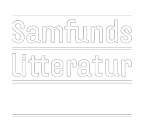boyd, danah (2018). “You Think You Want Media Literacy… Do You?” Data & Society: Points. <https://points.datasociety.net/you-think-you-want-media-literacy-do-you-7cad6af18ec2>
Buckingham, David (2003). Media Education: Literacy, Learning and Contemporary Culture. Cambridge: Polity
Buckingham, David (2006). “Defining digital literacy: What do young people need to know about digital media?”. Digital Kompetanse, 1 (4), s. 263-276
Cazden, Courtney; Cope, Bill; Fairclough, Norman; Gee, James Paul m. fl. (1996). “A pedagogy of multiliteracies: Designing social futures”. Harvard Educational Review, s. 60-92
Chall, Jeanne (1967). Learning to Read: The Great Debate. New York: McGraw-Hill
Drotner, Kirsten & Erstad, Ola (2014). “Inclusive Media Literacies: Interlacing Media Studies and Education Studies”. International Journal of Learning and Media, 4 (2), s. 19-34.
Eisenstein, Elizabeth (1979). The Printing Press as an Agent of Change: Communications and Cultural Transformations in Early-Modern Europe. Bd. I-II. Cambridge: Cambridge University Press
Gee, James Paul (2015). “The New Literacy Studies”. I: Rowsell, Jennifer & Pehl, Kate (red.). The Routledge Handbook of Literacy Studies. 1. udg. New York: Routledge
Goodman, Kenneth S. (1967) “Reading: A psycholinguistic guessing game”. Journal of the Reading Specialist, 6(4), s. 126-135
Goody, Jack & Watt, Ian (1963). “The Consequences of Literacy”. Comparative Studies in Society and History, 5 (3), s. 304-345
Green, Bill (1988). “Subject-specific Literacy and School Learning: A Focus on Writing”. Australian Journal of Education, 32 (2), s. 156-179
Hobbs, Renee (2016). “Literacy”. I: Bruun Jensen, Klaus & Craig, Robert T. (red.). The International Encyclopedia of Communication Theory and Philosophy. New York: John Wiley
Hobbs, Renee (2020). “Propaganda in an Age of Algorithmic Personalization: Expanding Literacy Research and Practice”. Reading Research Quarterly, 55 (3), s. 521-533
Livingstone, Sonia (2009). Children and the Internet. Cambridge: Polity
McLuhan, Marshall (1962). The Gutenberg Galaxy. Toronto: University of Toronto Press [Adskillige genoptryk. Jubilæumsudgave 2011]
Meyrowitz, Joshua (1994). “Medium theory”. I: Crowley, David & Mitchell, David (red.). Communication Theory Today. Cambridge: Polity, s. 50-77
Nikoltchev, Susanne; Cappello, Maja; Cabrera, Francisco; Valais, Sopie & Chapman, Martina (2016). Mapping of Media Literacy Practices and Actions in EU-28. Strasbourg: European Audiovisual Observatory
Olesen, Mogens (2018). “Medier som miljø: medium theory og medieøkologi”. I: Lauridsen, Palle S. & Svendsen, Erik (red.). Medieteori. Frederiksberg: Samfundslitteratur
Ong, Walter (1982). Orality and Literacy: The Technologizing of the Word. London: Methuen
Pangrazio, Luciana (2016). “Reconceptualising critical digital literacy”. Discourse: Studies in the Cultural
Politics of Education, 37 (2), s. 163-174
Stald, Gitte; Hjelholt, Morten & Høvsgaard Nielsen, Laura (2015). Media Literacy i en dansk kontekst: Specialrapport. Kulturstyrelsen og Medierådet for Børn og Unge. <https://www.medieraadet.dk/files/docs/2018-02/Media_Literacy_rapport_ITU_final.pdf>
Street, Brian (1984). Literacy in Theory and Practice. Cambridge: Cambridge University Press
Street, Brian (2009). “Multiple Literacies and Multi-Literacies”. I: Beard, Roger; Myhill, Debra; Nystrand, Martin & Riley, Jeni (red.). The SAGE Handbook of Writing Development. London: SAGE, s. 137-150
Street, Brian (2013). “Literacy in Theory and Practice: Challenges and Debate Over 50 Years”. Theory Into Practice, 52(1), s. 52-62
Street, Brian & Collin, Ross (2014). ”Ideology and Interaction: Debating Determinisms in Literacy Studies”. Reading Quarterly Research, 49 (3), s. 351-359.
Undervisningsministeriet (2018). Digitale kompetencer: Vejledning til lov og bekendtgørelse – Lov om de gymnasiale uddannelser § 29. <https://www.uvm.dk/-/media/filer/uvm/udd/gym/pdf18/aug/180816-vejledning-til-lov-og-bekendtgoerelse—digitale-kompetencer.pdf>
Zuboff, Shoshanna (2019). The Age of Surveillance Capitalism: The Fight for a Human Future at the New Frontier of Power. New York: Public Affairs.



